A century has passed since the first issue of Thanh Nien newspaper was introduced to readers, laying the foundation for the birth of Vietnamese Revolutionary Journalism.
Under the pen and timeless vision of leader Nguyen Ai Quoc, revolutionary journalism not only recorded history, but also directly participated in creating history - as a shock force in the journey to gain national independence, as well as in the cause of building and developing the country today.
Following the 100-year journey of the Vietnamese Revolutionary Press, many experts, journalists, and foreign friends who love Vietnam deeply feel the development steps as well as the contributions of the press to the development of the country.
Accompanying in the sacred mission
From the precious handwritten letters in the tunnels amidst the bombs and bullets of war to the digitalized news spread across the globe, the Vietnamese Revolutionary Press has gone through a long journey accompanying the country in every turning point of history.
As veteran journalist Martín Hacthoun - Chief Representative of Prensa Latina News Agency in Argentina, who used to be Chief Representative of Prensa Latina in Vietnam, said, during the struggle against French colonialism and American imperialism, the Vietnamese revolutionary press became a "spearhead" on the ideological front. And in the period of peace , the press plays a crucial role in the cause of construction, development and integration. Because since its inception 100 years ago, the revolutionary press has carried the mission of serving the interests of the nation and people.
Speaking about the historical role of revolutionary journalism in the struggle for independence and nation building of the Vietnamese people, journalist Gaston Fiorda, National Radio of Argentina, mentioned the period before the establishment of the Communist Party of Vietnam , with the foundation being propaganda articles of political organizations and underground grassroots organizations. According to him, "it was these journalistic structures that contributed to the form and dissemination of a common discourse on the aspirations for independence, freedom and preservation of cultural values of the Vietnamese people."
During the period when French was the official language in schools, and Vietnamese press and culture were marginalized, it was the press associated with the revolutionary movement that became the bridge between revolutionary leaders and the masses, helping to unify the struggle strategy and build the solidarity of the Vietnamese people. He called it "one of the most successful experiences in combining political propaganda, popularizing revolutionary ideals and mobilizing the masses against the colonial regime."
Journalist Toshifumi Kitagawa, Vice President of the Vietnam-Japan Friendship Association in Tokyo, who has had a deep relationship with Vietnam since 1973, shared that he has a deep love for Vietnamese journalism, from articles in Nhan Dan, Quan Doi Nhan Dan to the series "Great Victory of Spring 1975" by General Van Tien Dung. He felt "the power of the pen in connecting people and arousing aspirations."
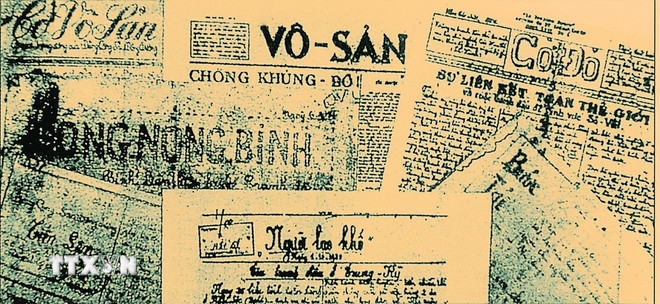
Even the Japanese news on Voice of Vietnam during the anti-American resistance war, with the emotional voice of the female announcer, not only carried information but also conveyed the desire for independence, touching the hearts of the Japanese people, becoming "a living symbol of patriotism and resilience." With the power of the pen, the press has become a bridge between people, between nations, and between ideals and reality.
From the words of journalist-soldiers, revolutionary journalism not only spread ideals but also became a sharp weapon to encourage the struggle movement and arouse the desire for independence.
Mr. Pedro Gellert, a veteran journalist from Mexico, highlighted the Vietnamese revolutionary press as “a phenomenon in the history of world media” because of its ability to reconcile political depth and closeness to the people. For him, the Vietnamese revolutionary press not only connects information between Vietnam and other countries but also serves as a bridge between the Vietnamese people and peoples around the world, between history and the present.
Meanwhile, General Secretary of the Mexican Labor Party Alberto Anaya Gutiérrez affirmed that the Vietnamese press not only records historical moments, but is also a source of inspiration for the struggle for independence, construction and development of the country. He called the Vietnamese press "a living symbol of patriotism and resilience." This is a praise not only for history, but also for the present - where journalists are still diligently working with their pens and putting their heart into every word.
Mr. Vinod Moonesinghe, Director of the Marxist Research Institute (Sri Lanka) Director of the Marxist Research Institute, commented that from the early days of the resistance war against colonialism, the Vietnamese revolutionary press was not simply a history recorder. Accompanying the Vietnamese people, the press became a strong driving force in the cause of national independence, building socialism and moving towards prosperity. The press played an essential role in defending the Fatherland and shaping the future of the country.
Besides, in the period of integration development, foreign press, as Argentinian journalist Gaston Fiorda said, is carrying out a dual mission: bringing Vietnam closer to the world, and bringing the world closer to Vietnam.
Sharing the same view, Mr. Rudroneel Ghosh, Senior Assistant to the Editor-in-Chief of The Times of India - a prestigious journalist with many years of experience in the media field and having worked in many countries around the world, was awarded the First Prize of the 6th National Award for Foreign Information in 2020, said that the Vietnamese mainstream press has successfully completed the task of conveying the official stance of the Vietnamese Government to the international community.
The Vietnamese press, including the Vietnam News Agency, has done a very good job as a media pillar, conveying convincing and accurate information about Vietnam's policies and achievements, playing a very prominent role in clearly and strongly conveying the country's viewpoint.
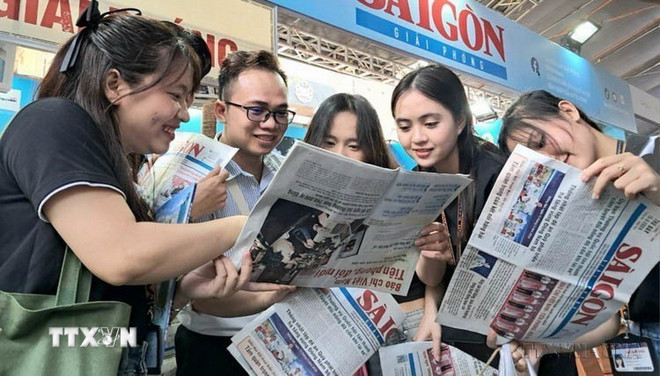
Meanwhile, Director of the Cuban National News Agency (ACN), journalist Norland Rosendo González, assessed that the Vietnamese revolutionary press has demonstrated the "transcendent" role of the media in creating consensus, consolidating culture and recreating symbolic values as the foundation for its identity.
The 100-year journey of the Vietnamese revolutionary press is a vivid testament to the strength and pioneering role of journalists. In the era of national development, when digital media opens up unprecedented space, according to Professor Vu Minh Khuong, Lee Kuan Yew School of Public Policy, the role of the press is even more important. The revolutionary press needs to continue to prepare to maintain its role of enlightenment and criticism for national development.
Professor Vu Minh Khuong emphasized three core points: the press must be an enlightening force; must promote and spread the strength of national unity; and finally, be a pioneering force in the development process - through proper, honest and constructive criticism.
Moving in the flow of innovation
Over 100 years of establishment and development, the Vietnamese revolutionary press has made strong progress in both quantity and quality. From the perspective of foreign experts, the Vietnamese revolutionary press continues to affirm and promote its leading role in the new era.
In an era of rapid technological development that opens up many opportunities and challenges, the 100-year-old revolutionary press needs to redefine its role as not only a place to publish news, but also a multi-platform, multimedia communication ecosystem capable of serving the diverse needs of the modern public.
This was affirmed by General Secretary To Lam that the new era requires the press to develop accordingly, grow together with the nation, and be worthy of professional, humane, and modern journalism.
According to many international scholars and media experts, Vietnamese journalism is a rare phenomenon in the world that maintains its political stance while constantly innovating strongly in terms of content, form and technology.
The President of the Mexican Press Association, Mr. Mouris Salloum George, called it a “living symbol of patriotism and resilience.” Information about Vietnam provided by the mainstream press not only builds trust but also becomes a valuable reference source for the international community in learning about a resilient country that has risen from the ashes of war to become a model of sustainable development.
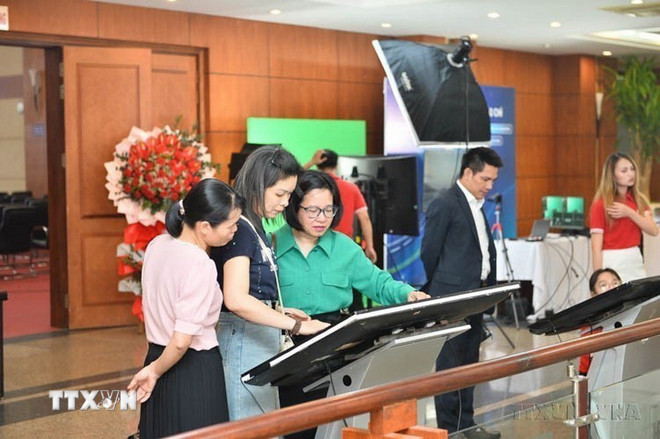
Having been present in Vietnam in the 1990s, when news gathering in Vietnam was very difficult, always having to wait for the next day's issue, journalist Miyake Kazuhisa, former Chief Representative of Kyodo News in Hanoi, was surprised when, in the period 2010-2015, online newspapers such as VietnamPlus and VnExpress brought news to the public almost instantly, reflecting a dynamic and integrated Vietnam. The openness and transparency in press conferences, along with innovation in journalistic thinking, have raised Vietnam's position in the international arena. Mr. Miyake emphasized: "Vietnamese journalism is integrating not only in technology but also in thinking and working methods."
Mr. Toshifumi Kitagawa, Vice President of the Vietnam-Japan Friendship Association in Tokyo, also expressed his surprise at seeing Vietnamese people watching important national events live via digital television platforms, something that even a technologically advanced country like Japan is still perfecting. To him, the development of the journalist team, the remarkable increase in media and the amount of multi-dimensional information have vividly reflected an increasingly professional, modern and humane press.
Along with the opportunities, journalism in general is facing unprecedented challenges from Artificial Intelligence (AI) technology and the proliferation of fake news.
Faced with this reality, international experts agree: mainstream media should be the “last bastion” to protect truth, morality and public trust. According to journalist Elena Nikulina of Sputnik International News Agency, who has been associated with Vietnam for more than 30 years, verification is the “golden quality” of mainstream media, and that is the reason why readers still put their trust in brands like VNA.
Sharing the same view, Mr. Rudroneel Ghosh - Senior Assistant to the Editor-in-Chief of The Times of India, a prestigious journalist who was awarded the First Prize of the 6th National Award for Foreign Information in 2020, shared: "The role of the press is to maintain its position as a place to verify information, a fulcrum for the truth."
Japanese journalist Miyake Kazuhisa emphasized that in the new era, the role of media professionals and journalists has become more important than ever. Their responsibility is to provide accurate and truthful information.
“Journalism remains the pillar of democracy, and journalists are not only transmitters of information, but also keepers of truth amidst a sea of confusing information,” said Nur-ul Afida Kamaludin, CEO of Bernama.
Although AI has a superior advantage over humans in the ability to update information and process huge data in a very short time, this modern technology still cannot replace the role of emotions, intuition and creativity, the core factors that make the difference in journalism.
“AI is a useful tool, but journalists are ultimately responsible to the public,” said Toshifumi Kitagawa. “Journalistic language must be clear, accurate, and cannot be altered by machines.”
David Grunewald, a journalism expert at the Free University of Brussels (ULB) in Belgium, said, "The future of journalism is not a choice between humans and machines, but an intelligent collaboration between the two to better serve the public."
Journalist Wei Wei - Head of the Vietnamese Department of China Central Radio and Television, commented that in the AI era, the media must go beyond the role of transmitting information to become creators of social values, protect ethics and maintain professional responsibility.
Looking back on the development of the past 100 years, many international experts highlight that Vietnamese revolutionary journalism was inspired by the ideology and practice of President Ho Chi Minh in journalism activities associated with Marxism-Leninism and adapted to the country's context.
Director of the Cuban National News Agency (ACN), journalist Norland Rosendo González praised President Ho Chi Minh as "the founder of Vietnamese revolutionary journalism."
Recalling one of the core principles that President Ho Chi Minh once emphasized, that is, "the press must serve the interests of the people," journalist Rudroneel Ghosh stated that being steadfast in the ideology of "taking the people as the root" in journalism activities in the spirit of President Ho Chi Minh can become an effective "shield" against the risk of information manipulation and the spread of fake news, while helping to keep readers attached to the mainstream press. That is the right path for the Vietnamese Revolutionary Press to maintain its value and prestige in the 21st century, continuing to transform in the flow of innovation to fulfill the noble mission of accompanying the nation in the new era./.
Source: https://www.vietnamplus.vn/bao-chi-cach-mang-viet-nam-truc-tiep-tham-gia-kien-tao-lich-su-post1045435.vnp












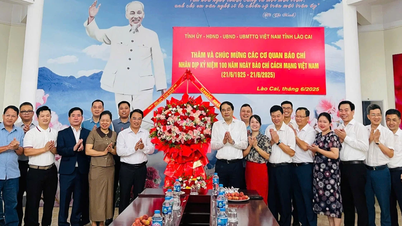

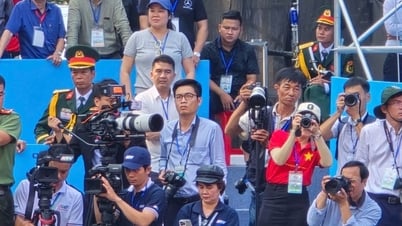



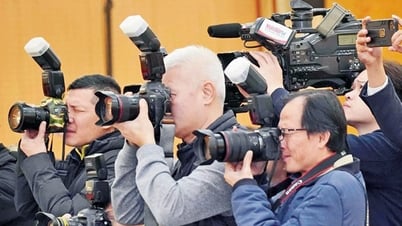

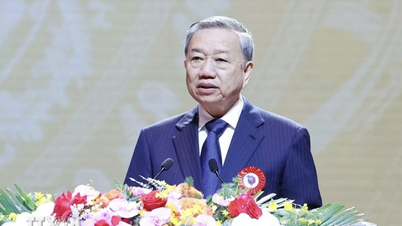
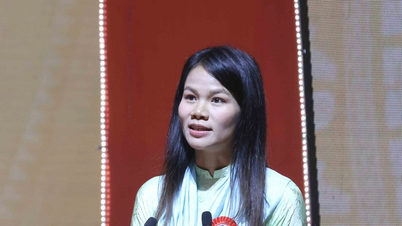
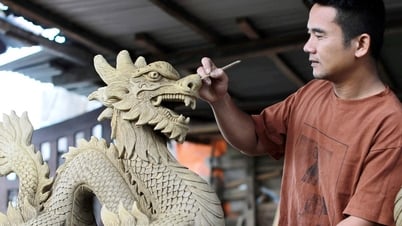
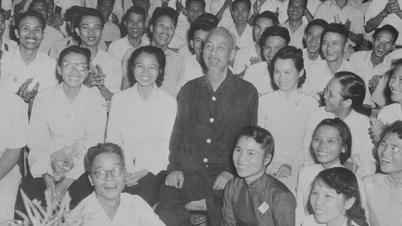






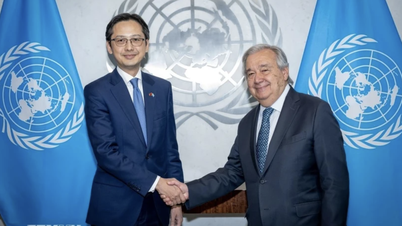
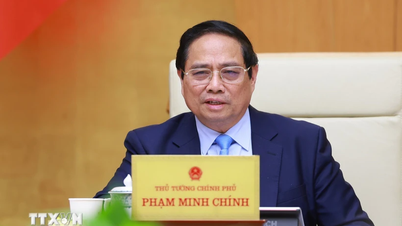


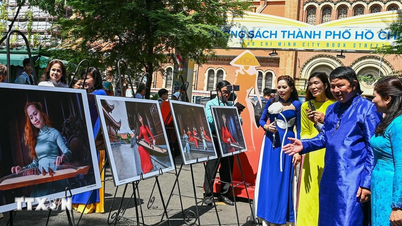

![[Photo] Overcoming the heat, practicing to prepare for the parade](https://vphoto.vietnam.vn/thumb/1200x675/vietnam/resource/IMAGE/2025/6/21/b93392e8da8243b8a32040d19590e048)



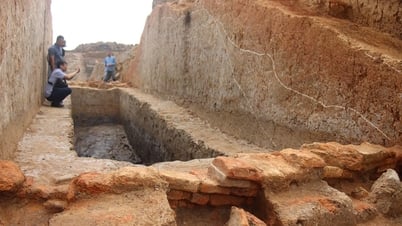

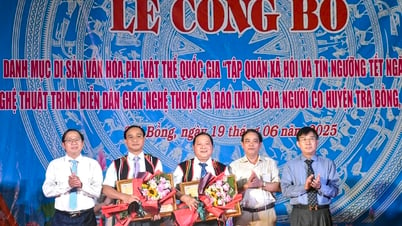






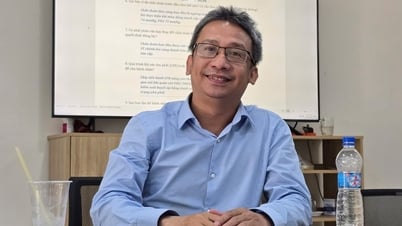


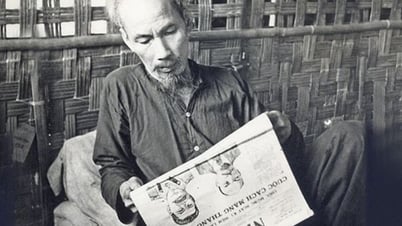
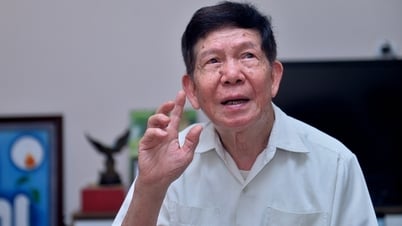









![[Maritime News] Wan Hai Lines invests $150 million to buy 48,000 containers](https://vphoto.vietnam.vn/thumb/402x226/vietnam/resource/IMAGE/2025/6/20/c945a62aff624b4bb5c25e67e9bcc1cb)






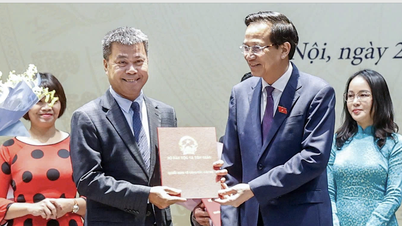

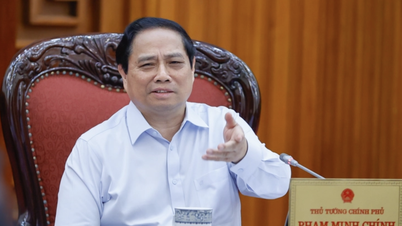

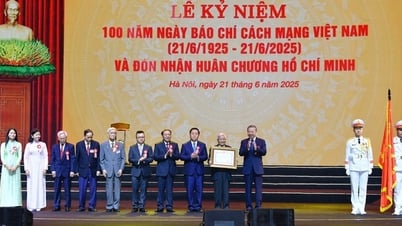

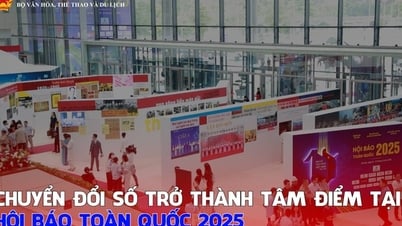
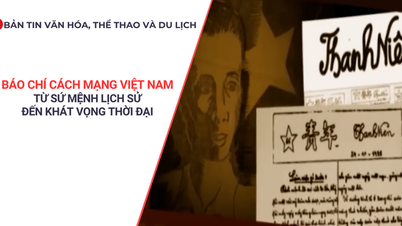
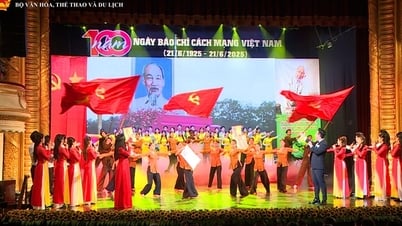
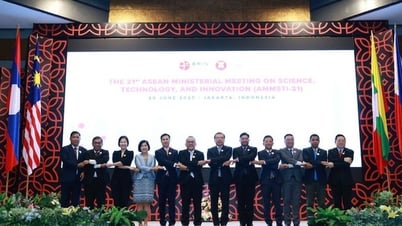

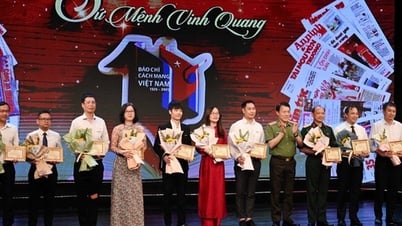
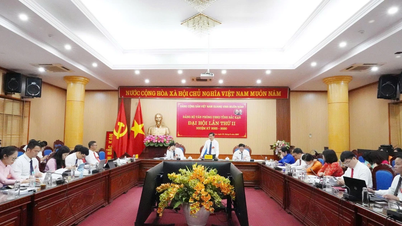

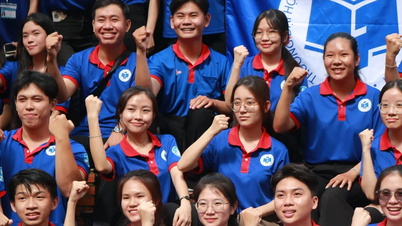
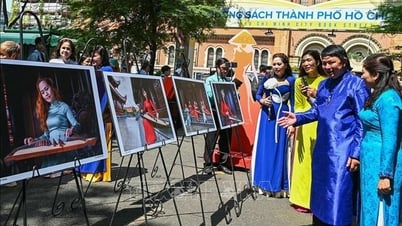

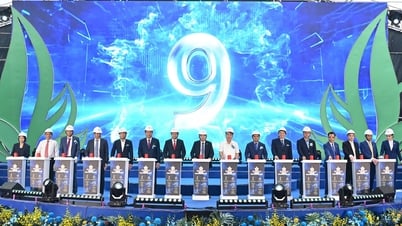



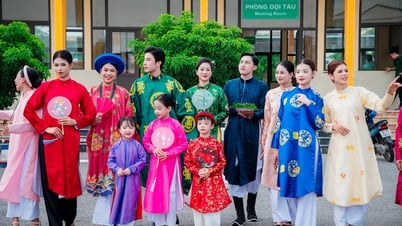











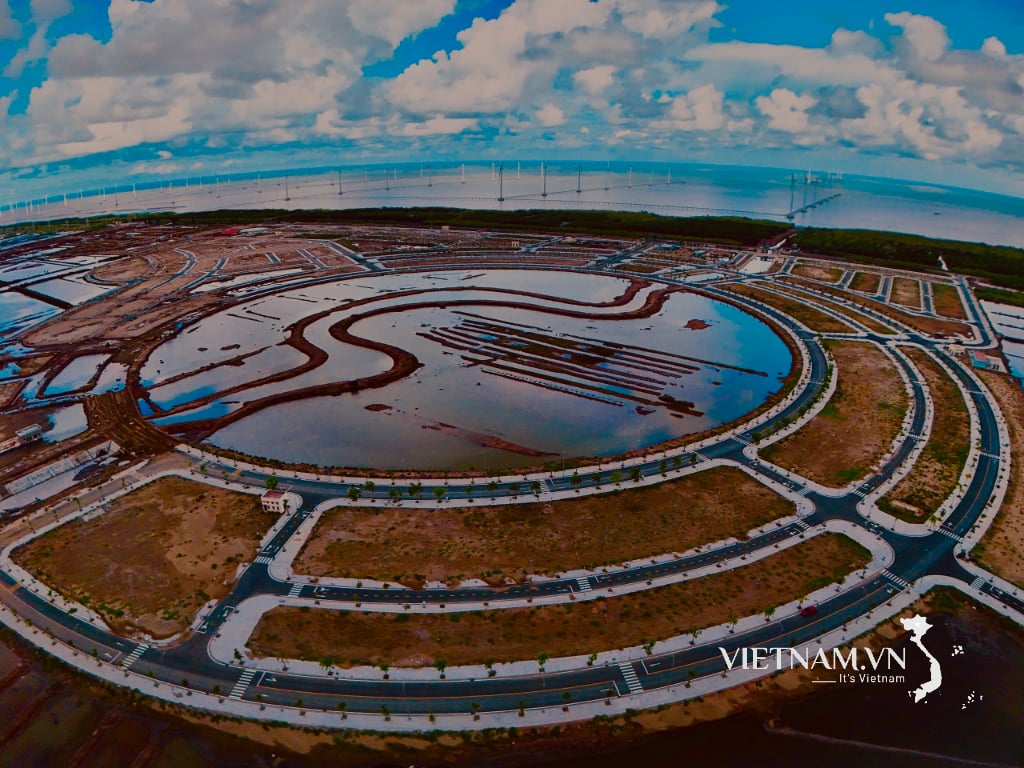
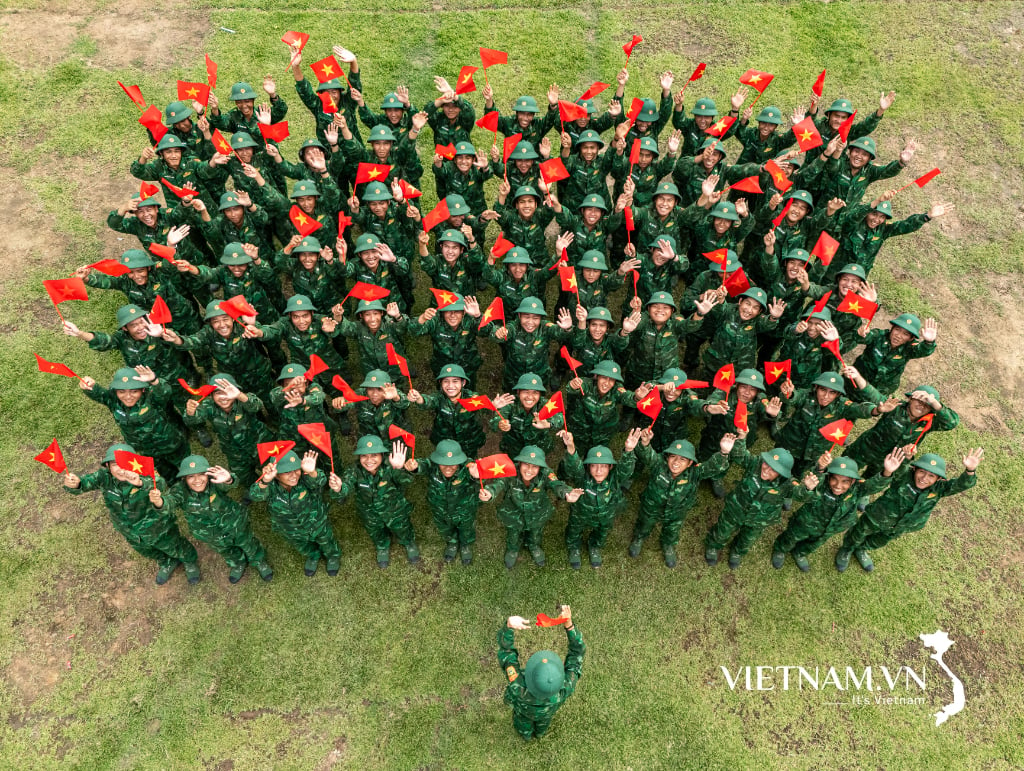

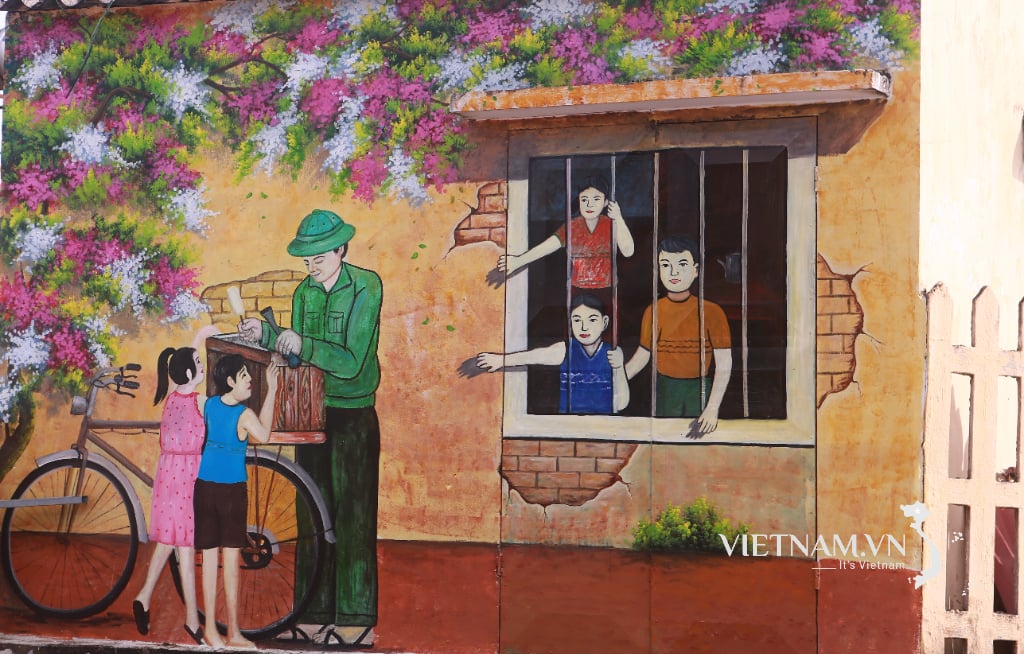
Comment (0)